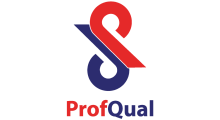The Professional Diploma in Production Management (PDPM) is designed to equip participants with the essential knowledge and skills required to manage production processes effectively and efficiently. The program provides a comprehensive understanding of operations management, product and process development, supply chain management, and quality control.
Participants will learn how to apply strategic planning, improve productivity, implement quality management practices, and enhance team performance within production environments. This diploma is ideal for professionals looking to enhance their expertise in production management and drive operational excellence in their organizations.










